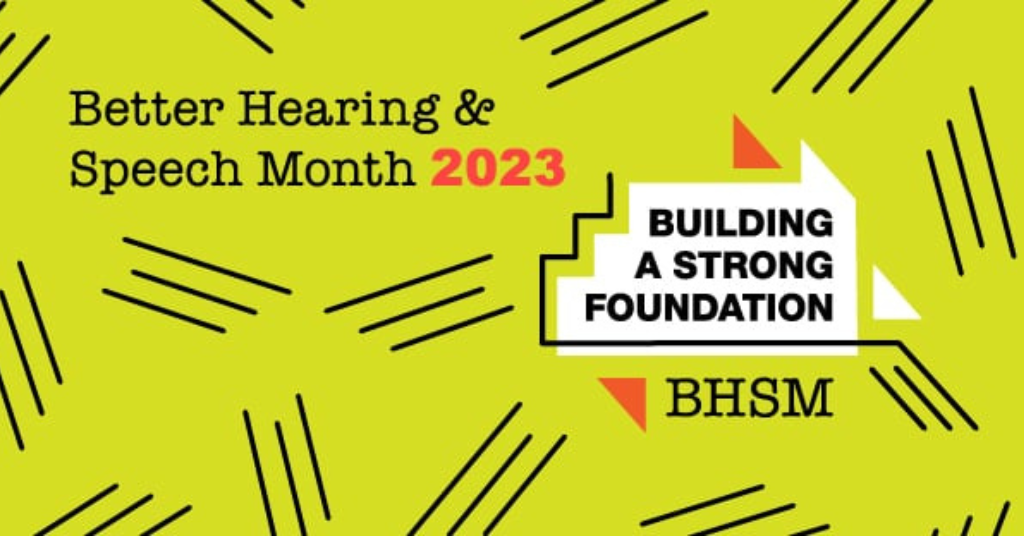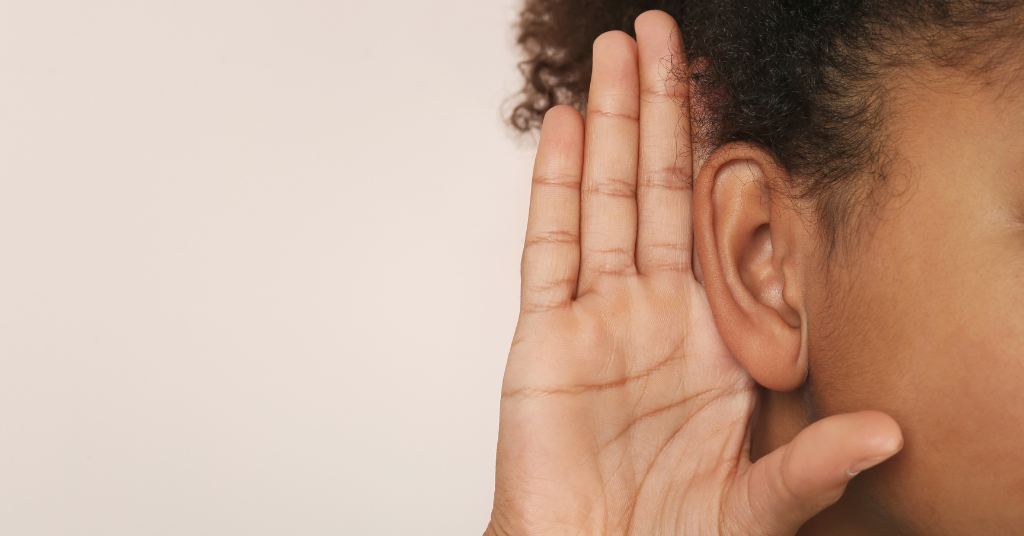
How to help deaf teens advocate for themselves
October 29, 2019
The hearing aid emoji is here!
October 31, 2019A guide for your next audiology appointment

October is Audiology Awareness Month, which serves to emphasize the significance of a vastly important profession. Audiologists provide services to a wide and diverse range of people who are deaf and hard of hearing. They meet needs that often cannot be met elsewhere.
People who are deaf and hard of hearing, as well as their guardians, should have adequate information about going to the audiologist. Since it’s Audiology Awareness Month, there’s no better time to get started on preparing for your next audiology appointment.
Be prepared to ask questions
What questions should you ask your audiologist? An appointment is a great opportunity to share personal concerns and get access to information. I always ask if my hearing has changed, as this has implications for adjusting my hearing aids. I also ask for tips on troubleshooting, particularly if I’ve recently had technological issues. This applies to external devices or microphones like my Phonak Roger, as opposed to just my hearing aids.
In terms of technology, there are other questions you can ask as well. If you have the resources and the need for new hearing assistive devices, you should request information on new models of hearing aids or external microphones. I use Phonak Marvels and a Roger Select, which are extremely helpful upgrades from my previous devices. Lastly, ask for information regarding your next appointment. It’s important to go to the audiologist at least on a semi-regular basis. Hearing and assistive technology can change over time.
Take time to test out technology
Audiology appointments also serve the important function of allowing you to test and troubleshoot technology. With this in mind, there are some steps you can take to facilitate that process. The first thing you should do is identify if there are any problems, and if so, what they are.
This can be done through several methods. You and your audiologist should start by performing hearing tests. This usually consists of a series of beeps, word recognition, and measuring the movement of eardrums. These tests are performed in one or both ears, with and without assistive devices. A hearing test can consist of one or all of these methods. It most likely will vary based on your audiologist.
Next, test any external microphones, Rogers, or additional devices you may use. This can also be done through one or several different methods. I typically start by simply syncing the microphone to my hearing aids. This ensures that I can use my device efficiently and that the connection is strong. If it is not, I may have to have repairs done on my hearing aids or microphone. This is a worst-case scenario, as there is usually an easy fix.
First, change the batteries in your hearing aids and ensure the microphone is well charged. Power issues can harm the connection between the two. If this doesn’t work, turn the hearing aids and microphone on and off, and hold them close together when syncing. But after checking your hearing assistive devices, you should have a good idea of whether there are any issues, and if so, how to fix them.
Troubleshooting Technology
Afterwards, have a discussion with your audiologist about possible solutions to these problems. Possible fixes would likely include adjusting the volume or frequency of your hearing device or microphone. Cleaning them (which would probably involve changing wax traps or cleaning airways), changing batteries, or opting for repairs are other fixes. This can be a long and tedious process though. I always employ it as a last resort, since I may not have full access to my hearing devices for some amount of time. Generally, the process for troubleshooting involves gathering information, identifying issues, and looking for solutions, which have implications for finding the cause of the problem and preventing future ones.
Developing a positive relationship with your audiologist
With all this in mind, it’s important to develop a positive relationship with your audiologist. This is vital because the audiologist fulfills a need that other medical professionals cannot, and need to be able to do so with confidence and comfort. A sense of trust allows for easier sharing of information from the patient to the audiologist. This is significant in terms of gathering accurate data on the patient’s hearing and needs. For many hard of hearing and deaf people, hearing devices are a prized and important possession. Allowing someone else to handle them requires a positive relationship and a sense of trust between the two. Developing a relationship between the audiologist and patient plays an important role in providing adequate and helpful service.
“Developing a relationship between the audiologist and patient plays an important role in providing adequate and helpful service.”
There are several other things you should keep in mind when going to the audiologist, especially if doing so for the first time. The most important thing is to keep an open mind and understand that the audiologist is there to help you. Audiology appointments should be a regular occurrence and play a significant role in ensuring medical help and sufficient hearing assistance. Audiologists help to provide this service. Understand that they are there to help you acquire that. Also, don’t be afraid to go with a parent or guardian. I still go to the audiologist with my parents, who are very helpful in terms of relaying and absorbing information. They can also assist in terms of scheduling the next appointment, financing, and making important needs-based decisions.
Read more: Why is the audiologist-patient relationship so important?
Going to the audiologist can be an extraordinarily helpful and positive experience. Doing so allows for better hearing assistance, a greater understanding of hearing loss, and improved odds of meeting those needs. As October is Audiology Awareness Month, it is a great time to spread and receive this information.
What to expect at your child’s first audiology appointment
Visit an audiologist
If you or a loved one has hearing loss, and you’re looking for an audiologist near you, you can use this tool from Phonak to find a hearing specialist in your area.



